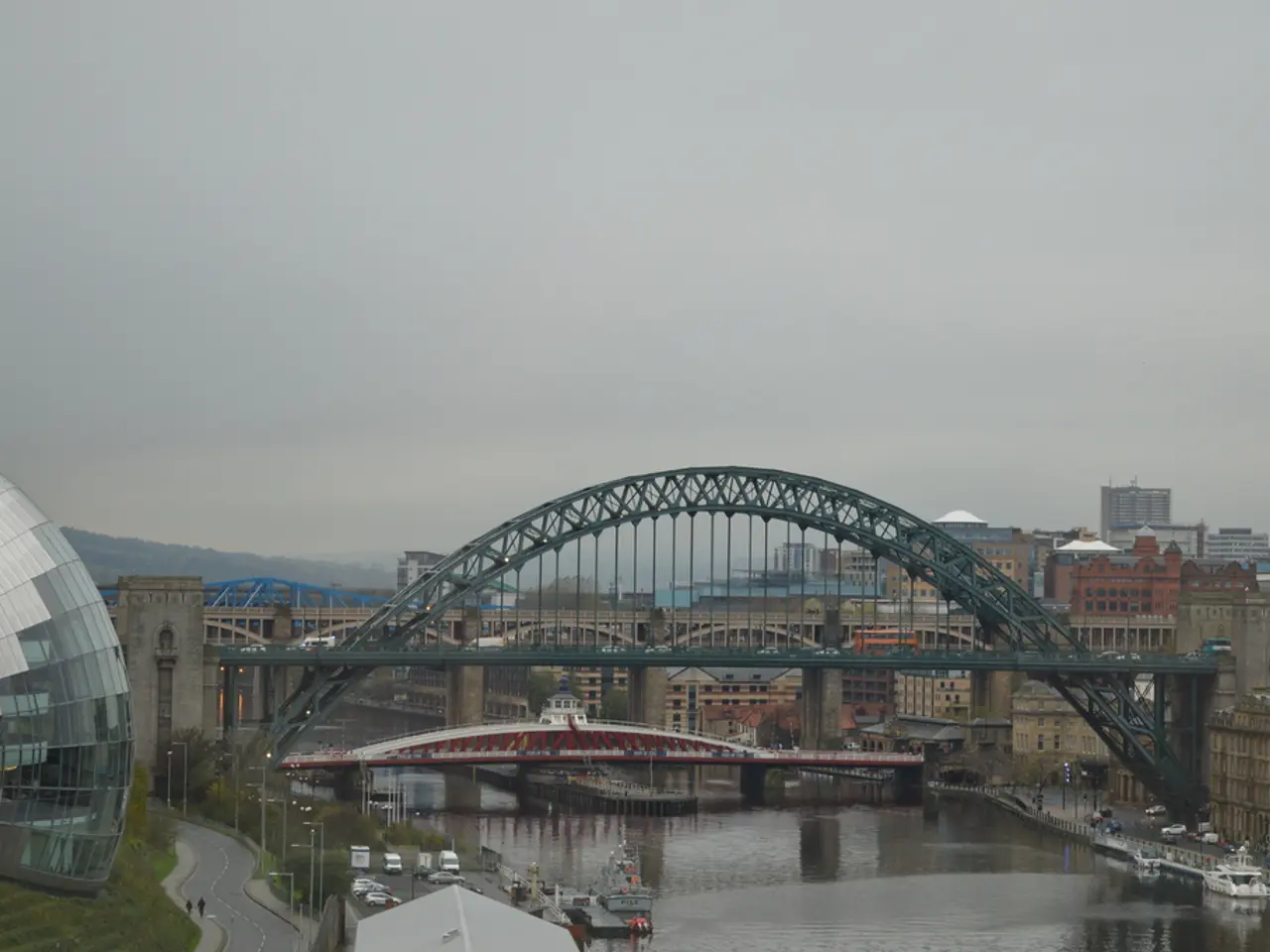Ghana's Economy Transformation: Can a Round-the-Clock Economy Remold the Nation?
Ghanaian President John Mahama has launched a bold initiative, the 24-hour economy policy, aimed at creating job opportunities around the clock and transforming Ghana from an imports-based economy to self-sufficiency. The policy primarily targets existing key sectors such as agriculture, manufacturing, and essential services, with potential expansion to other areas in the long term.
The 24-hour economy plan aims to transform Ghana into a continuous, around-the-clock productive economy by integrating sectors like agriculture, manufacturing, and logistics. The goal is to create 1.7 million jobs in four years and boost the GDP. The total projected cost of this ambitious plan is approximately $4 billion, with the government committing $300-$400 million as seed capital to attract around $2 billion in private sector investment so far.
However, the feasibility of the 24-hour economy depends heavily on government leadership in funding and infrastructure investment, especially in power supply, and on gradually securing robust private sector commitment. One of the significant challenges is the electricity supply, with Ghana's power supply currently insufficient to support a 24-hour economy. The 24-hour economy will significantly increase electricity demand, potentially reaching 9,150 MW peak demand by 2030, requiring an additional 1,200 MW of power generation capacity by 2027.
Another challenge is the need for behavioral and operational adjustments. Extending working hours across sectors will require cultural and operational shifts, which need coordinated policy measures and private sector buy-in. Smaller enterprises may be hesitant to participate due to potential financial losses.
Economist Daniel Amateye believes that bridging the gap from the theoretical idea behind the new policy to its actual application is where things could potentially go awry. He suggests that the balance of power between various stakeholders in the 24-hour economy may not be as balanced as the government suggests.
The government's role in the 24-hour economy will be primarily as a facilitator for the private sector. Under the policy, various industries will operate in three eight-hour shifts daily with public and private sectors working together to keep the economy running day and night.
The 24-hour economy policy is a collaborative effort involving labor unions, the private sector, and international development partners. Workers are encouraged to shift their focus from white-collar jobs to vocational and technical training to build a 24-hour economy. Ghanaian President Mahama has placed a firm focus on reviving the country's economy since taking office six months ago.
Economist Daniel Amateye suggests continuing and expanding the One District One Factory initiative for job creation as another way to improve Ghana's economy and build on the gains of the previous administration. He does not view the 24-hour economy as a sole game changer but as one of the ways to improve Ghana's economy.
However, funding will be a limiting factor in implementing the 24-hour economy policy. Ghana already owes $3 billion to the International Monetary Fund after defaulting on some of its existing debt. Economist Amateye suggests that the onus should be on the government to provide the initial funding.
Ghana's mindset and perception of government transparency and accountability need to change for innovative approaches like the 24-hour economy to be successful. The reliance on the private sector for the 24-hour economy could result in private companies having too much leverage.
By the end of the decade, the 24-hour economy policy could create 1.7 million new jobs across Ghana, resulting in a 5% drop in unemployment. The policy, if successfully implemented, could position Ghana as a regional leader in continuous economic productivity and self-sufficiency.
- The 24-hour economy policy, spearheaded by Ghanaian President John Mahama, aims to collaborate with international development partners and attract business investments beyond the initial $2 billion, in an attempt to partially fund the $4 billion project.
- To achieve self-sufficiency, the 24-hour economy policy seeks to diversify Ghana's economy, moving beyond traditional sectors like agriculture, manufacturing, and essential services, towards a more integrated economy that includes logistics and other industries.
- In order to maintain success and prevent private companies from wielding excessive power, it's crucial for Ghana to prioritize government transparency and accountability, ensuring that the country's mindset embraces innovation and progress.




